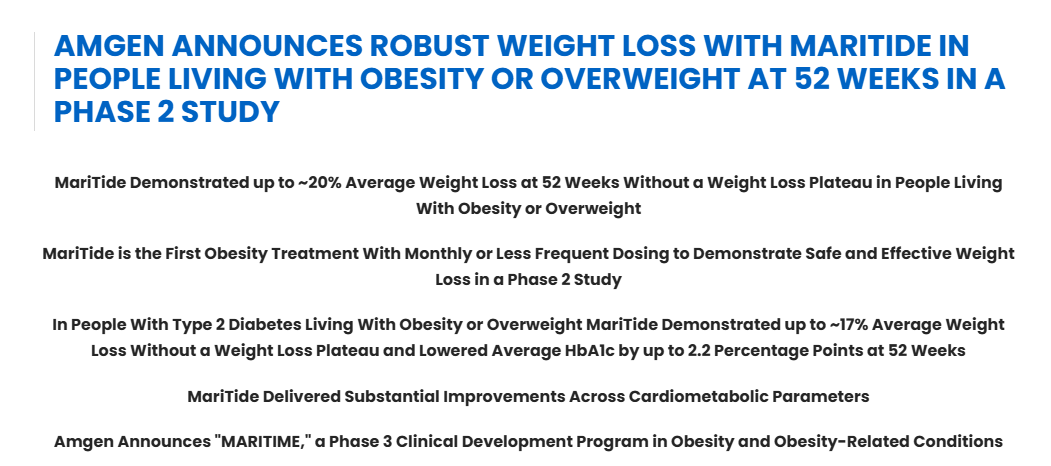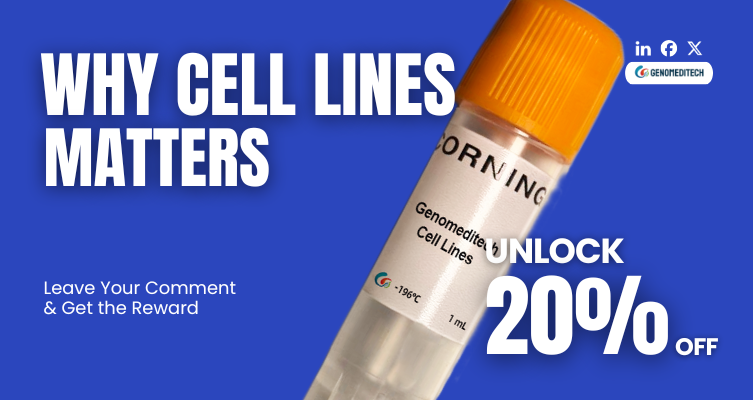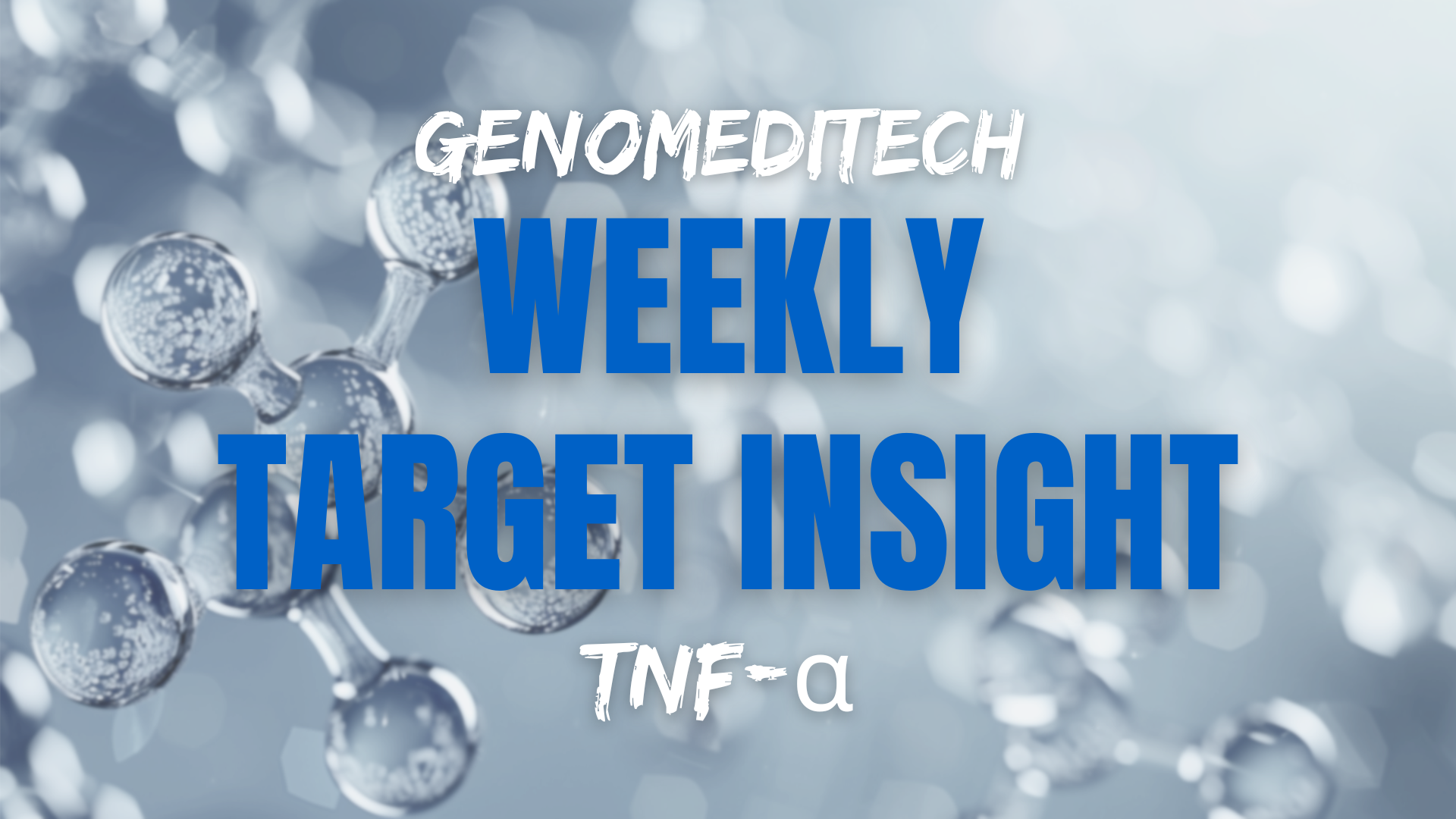Nov. 26, 2024, Amgen today announced positive data at 52 weeks in a double-blind, dose-ranging Phase 2 study with MariTide (maridebart cafraglutide, formerly AMG 133), an investigational antibody peptide conjugate subcutaneously administered monthly or less frequently. In people living with obesity or overweight without Type 2 diabetes, MariTide demonstrated up to ~20% average weight loss at week 52 without a weight loss plateau, indicating the potential for further weight loss beyond 52 weeks. The study also showed people living with obesity or overweight and Type 2 diabetes, who typically lose less weight on GLP-1 therapies, achieved up to ~17% average weight loss, also without a weight loss plateau, and lowered their average hemoglobin A1C (HbA1c) by up to 2.2 percentage points at week 52.In summary, in both study populations, a weight loss plateau was not observed, again indicating the potential for further weight loss beyond 52 weeks. Learn more about our GLP catalog.

MariTide also demonstrated robust and clinically meaningful improvements in cardiometabolic parameters, including blood pressure, triglycerides and high-sensitivity C-reactive protein (hs-CRP) across doses. There were no significant increases in free fatty acids.
There was no association between the administration of MariTide and bone mineral density changes.
The most common adverse events (AEs) in the Phase 2 study were gastrointestinal (GI) related, including nausea, vomiting and constipation. Nausea and vomiting were predominately mild, transient and primarily associated with the first dose. The incidence of nausea and vomiting was substantially reduced with dose escalation. In the dose escalation arms, for those with symptoms, nausea and vomiting were episodic; generally resolving within a median window of six days for nausea and one to two days for vomiting. The discontinuation rate in the dose escalation arms due to any AE was ~11% and less than 8% for GI-related events. No additional safety signals were identified. In a separate ongoing Phase 1 pharmacokinetic study, additional dosing regimens have been evaluated in a planned preliminary analysis.
"We are very excited by MariTide's differentiated profile, with clinically meaningful attributes of substantial and progressive weight loss, monthly or less frequent dosing, significant improvements in cardiometabolic parameters and strong reduction of HbA1C," said Jay Bradner, M.D., executive vice president of Research and Development and chief scientific officer at Amgen. "These results provide us confidence to initiate MARITIME, a Phase 3 program across obesity and a number of related conditions, providing a unique potential new treatment option for patients."
Data from this Phase 2 study will be presented at a future medical congress and submitted for publication.
The ongoing Part 2 of the Phase 2 study is investigating MariTide beyond 52 weeks to evaluate further weight loss with continued treatment, weight maintenance through less frequent or lower dosing and durability of weight loss after discontinuation of MariTide. More than 90% of eligible patients chose to continue to participate in Part 2 of the study.
MariTide is expected to be delivered as a single dose in a convenient, handheld, patient-friendly, autoinjector device with a monthly or less frequent single-injection administration. MariTide is produced in Amgen's industry-leading manufacturing network.
Amgen is also advancing its obesity pipeline, which includes both oral and injectable approaches, composed of both incretin and non-incretin mechanisms.














